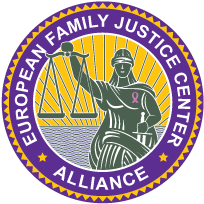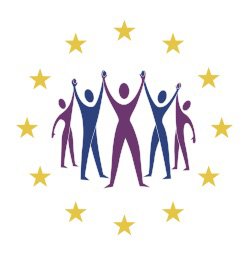COVID 19 impact on domestic violence and child abuse
Practical guidelines for multidisciplinary collaboration within the approach of domestic violence/child abuse and housing for survivors and their families
*In order to tackle domestic violence and child abuse under the Covid-19 measures, the partners in the multidisciplinary approach need to rework a number of issues quickly and ad hoc. An important factor is the replacement of the face-to-face approach to a telephone and online approach.
In addition, some of the usual elements in the approach will be dropped until further notice, so that other mechanisms need to be worked out.*
The focus for the coming period will also be on installing immediate safety, shifting long-term perspectives until more resources are available again after lifting all restrictive measures during the crisis.
Multidisciplinary collaboration
Multidisciplinary cooperation is a crucial factor in ending domestic violence and child abuse and installing safety. The way in which this is organized requires a different and virtual reality. Case consultation, network discussions and multidisciplinary meetings with the involved family members is not an issue during a lock-down and social distancing.
How do I ensure the best possible multidisciplinary collaboration during the crisis? Some practical guidelines:
- Provide a permanent virtual coordination team with cooperators of (key) partner organisations. This can be, for example, the team of a Family Justice Center and/or a similar multidisciplinary center.
This coordination team provides a central point for the regional organizations and professionals in contact with victims of domestic violence, gender-based violence and child abuse and their families. Ensure that these organizations and professionals do agree this coordinating role and, if required/necessary, involve the responsible government (local, regional or national). Communicate this coordinating role in the whole network as soon as possible.
- Organize an advice and consultation video conference (zoom, skype, teams, etc.) at fixed times during the week. This gives professionals the opportunity to log in and ask for advice in cases of domestic violence and child abuse. The permanent team of professionals can provide a regularly updated overview of the assistance still available, adapted approach of the involved services (police, justice, social care, youth care,…) and the housing options. The team can form the bridge between social care and help centers and police and judicial authorities for urgent interventions in the event of (threatened) escalation. Ensure that professionals can easily contact and register through a website or email in order to receive advice and consultation if needed.
- Organize a multidisciplinary collaboration through telephone consultation with partner organizations, in which professionals can register themselves through website or email: consultation with addiction care, mental health care, lawyer, bailiffs, and more.
Housing
As a professional, make sure you know what is available in your area in terms of assistance, care and what you can expect from the police and judicial authorities. This can differ from day to day and therefore stay informed on the available options.
How do I provide housing/shelter options for survivors and their children? Some practical guidelines:
- The multidisciplinary partnerships, such as Family Justice Centers and related multidisciplinary models, can provide an overview of the availability of housing/shelter options for survivors of domestic violence and child abuse in the region, including how to contact them. They can make these available and keep them up-to-date through their website and/or mailing to the partner organizations.
- Due to the crisis, in many cases fewer places for shelter and help are available and they need to be used even more carefully. At the same time, crises in domestic violence and child abuse may require faster action given the loss of other options for de-escalation. It is important to keep an overview of the possibilities.
- Agree (regionally) how the professionals view daily the available residential shelters. This can be done, for example, by agreeing to install a permanent contact person of a multidisciplinary setting who has access to the information and can provide this to the partners on request. An online multidisciplinary consultation to switch quickly can be helpful here. This avoids by example that professionals have to call all possible centers individually.
- Create extra residential care: Discuss with the local authorities the options for providing residential care for victims of domestic violence and their children. Use can be made of buildings of the public authorities or local/regional/national organizations/governments that are vacant under Covid-19, of hotels or bungalow parks in the region, and more. Be as creative as possible and come up with proposals to the responsible authorities. Inquire with the other regions if they have already taken any action and for any available roadmaps.
- Ensure good follow-up from the multidisciplinary cooperation between the crisis centers, police and justice. Make agreements with the police about the safety of the victims and their family members.
- Agree with philanthropic organizations and service clubs to provide sponsorships to support additional residential care, by example in hotels, during the Covid-19 measures for victims of domestic violence and child abuse and their family members.
- Under normal circumstances, there are rules for access in most shelters. Conta-indications to enter the center can be, for example, because of psychiatric problems or drug use, or undocumented status. Due to the limited possibilities to bring people in safety, it may be advisable to reduce or minimize these rules and to focus on direct physical safety as much as possible.
- Involve psychiatric support, mental health care and addiction care through telephone contact or online options (chat, video calling) counseling for people in shelters.
Examples of quickly organizing a central and permanent coordination point
The Family Justice Center (FJC) Antwerp took the coordinating role at the start of the COVID-19 measures. FJC Antwerp acts currently as a central and virtual coordination point for (imminent) situations of domestic violence and child abuse. The existing cooperation of the police, judicial, administrative and social and help centers within the FJC made it possible to organize this quickly and effectively. The multidisciplinary approach forms a good basis to switch more easily to online crisis consultations in the event of (imminent) escalating situations of domestic violence and child abuse, alternative housing options and concrete agreements with the relevant partners aligned to the crisis measures.
More information: info@efjca.eu


